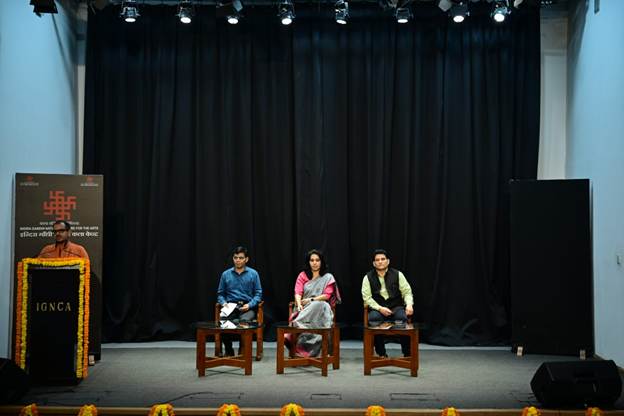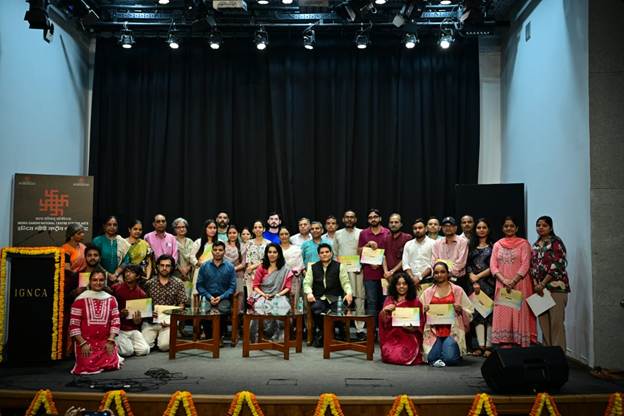“All are benefitted by the inspiration that flows from women as embodiments of Shakti.”- Dr. Priyanka, Mishra
“All are benefitted by the inspiration that flows from women as embodiments of Shakti.”- Dr. Priyanka, Mishra
The month-long celebration of Hindi Maah 2025, organised by the Rajbhasha Anubhag ( Section) of the Indira Gandhi National Centre for the Arts (IGNCA), concluded with grandeur alongside the prize distribution ceremony for various competitions. Dr. Priyanka Mishra, Director (Administration), IGNCA, felicitated the winners. Around 50 participants were awarded in different categories. On this occasion, students of various IGNCA courses also presented cultural performances. Prof. K. Anil Kumar, Head of Janapada Sampada Division, was present at the ceremony. Prof. Arun Kumar Bhardwaj, In-charge of the Rajbhasha Section , conducted the programme with erudition and extended a vote of thanks at the end.

On this occasion, Dr. Priyanka Mishra congratulated the Rajbhasha Section for the successful organisation of Hindi Month. She extended greetings on Durga Ashtami and remarked that since the event was held on this sacred day, its success was certain. She said, “I believe women are embodiments of Shakti, and everyone benefits from their strength.” She further recalled, “A few years ago, we used to celebrate Hindi Saptah (Hindi Week), then we started celebrating Hindi Fortnight. This year, we organised Hindi Maah (Hindi Month) which reflects IGNCA’s commitment to the Hindi language.”

The programme commenced with Swasti Vachan by Indresh Kumar Shukla and Saraswati Vandana by Arvind Kumar Sharma. It concluded with devotional songs presented melodiously by Aditi and a bhajan recital on guitar by Manisha Paul.
It is noteworthy that Hindi Month was observed from 2nd to 30th September. According to Dr. Sachchidanand Joshi, Member Secretary, IGNCA, the purpose of organising Hindi Month was to increase the use of Hindi and to foster greater awareness about it. Throughout the month, various cultural and literary activities and competitions were held. These included competitions on forgotten or obsolete Hindi vocabulary, recitation of self-composed poetry, Swasti Gayan, Mangalacharan and devotional songs, writing contests on region-specific words used in daily life, and competitions on linguistic/survey-related themes, among others.
****